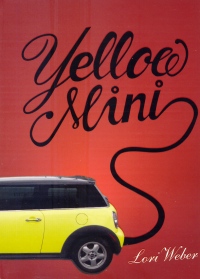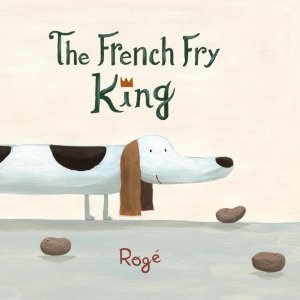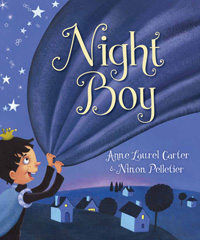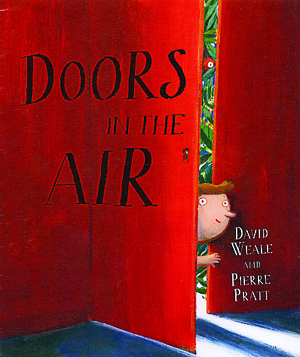It’s only the bravest of warriors who take up the gauntlet and teach poetry to high school students. Engaging teenagers and getting them excited about poetic forms takes a combination of an indomitable spirit, an ingenious mind, and inexhaustible life force.
Traditionally, teachers have used song lyrics as a means of introducing their young charges to the power and relevance that poetry already plays in their lives. Metre, rhythm, and rhyme are all hidden there in the words of their favourite Foo Fighters or Rihanna song. And once you’ve got them hooked, it’s not hard to make the connections between the poetry they already know and the verse they’ve yet to discover.

Yellow Mini
Lori Weber
Fitzhenry & Whiteside
$9.95
Paper
9781554551996
Lori Weber has another strategy for introducing young adults to poetry. She has written a novel in verse aimed at the high school crowd. Published by Fitzhenry & Whiteside, Yellow Mini contains of series of poems written in free verse that describe the lives of 13 characters over a period of a few months. Each character writes their own poems from their own point of view. Five of the characters are 16-year-old teenagers and the remaining eight are adults – seven parents and one teacher.
The book itself is laid out attractively: poems appear in various shapes and sizes and the black and white illustrations are simple yet effective. It’s obvious that the publisher took time and effort to produce a visually appealing book and that they believe in the value of offering teenagers access to poetry.
But despite the best efforts of the publisher and the writer, Yellow Mini falls short. Most disappointing is the overall quality of the poems themselves. At its best, free verse is a meaningful combination of carefully chosen words resonating with lyrical qualities, patterns of sound and repetition. Free verse is not limited by rhyme, cadence, or metre, but it is nevertheless meticulously crafted. Indeed, without the rules inherent in other poetic forms, the writer of free verse is called upon to create an effective form as well as expressive content. Unfortunately Weber largely fails to provide either rigorous form or vivid content.
Take for example Annabelle’s reflections on her former friend Stacey:
I see the way Stacey stares at me
and Christopher like she a) can’t
believe I have a boyfriend and b)
can’t believe it’s Christopher
Often the reader is left wondering what makes the writing poetry. What difference would it make if this were written in a more traditional prose format? A reader unfamiliar with free verse at its best – think Walt Whitman, Allan Ginsberg, and Dorothy Livesay – could very well come away from Yellow Mini assuming that anything written with irregularly broken lines qualifies as free verse.
It’s true that many of the poems written in this book are from the perspective of a teenager. And perhaps one could argue that it is appropriate then that the poems are rough and unsophisticated. This argument might excuse the lack of rigorous form in the work, but it does not excuse the absence of emotional depth. Teenagers know all about emotion and if given the chance will provide incredibly rich and powerful imagery to express what they’re feeling. Weber’s narrators rarely do that. Most of the time they just provide the facts necessary to move the plot along. The poems written from an adult’s perspective don’t fare any better. Here too we are left with neither effective form nor expressive content.
Despite the criticism of this work, we should thank Lori Weber for her willingness to experiment with form within the Young Adult genre.

The French Fry King
Rogé
Tundra Books
$19.99
Hardcover
9781770493506
It’s hard to resist a sausage dog with big ideas, and that’s what Rogé gives us in the new English translation of The French Fry King. Along with a charming story about this irresistible protagonist, Rogé’s painted folk-art–inspired illustrations take us into Roger the sausage dog’s world. And what a world it is. It seems that a little dog with big ideas is capable of achieving anything he puts his mind (and paws) to. And so when a random potato rolls his way, Roger gets a brilliant idea. One refurbished trailer and many pounds of peeled potatoes later, Roger starts a french-fry business.
Before you can say “woof,” the entrepreneurial canine is crowned king of fries and is traveling the world, creating all manner of gourmet fries, and celebrated everywhere he goes. But it seems even sausage dogs get the blues and so Roger must face the limitations of his dreams for fame and fortune. Roger does eventually discover what gives true meaning to his life; something that goes far beyond his original material desires. A pleasure to look at and a pleasure to read for parents, the six and under set, and aficionados of sausage dogs everywhere.

Night Boy
Anne Laurel Carter
Illustrated by Ninon Pelletier
Orca Books
$19.95
Hardcover
Ages K-3
9781554694020
Bedtime is a popular and enduring theme in picture books, and for good reason. Most parents consider reading a book to their child a necessary element in the bedtime routine, as compulsory as the endless stalling manoeuvres that must be satisfied before sleep is finally achieved. What better story to tell at bedtime than one that ends with a young child tucked cozily between the covers, fast asleep?
Night Boy, by Anne Laurel Carter, follows the antics of a young prince named Night and his mischievous older sister Princess Day. Day challenges Night to a game of hide-and-seek and so begins an intergalactic race across the solar system. Night packs a sack full of snacks, grabs his favourite teddy bear, jumps aboard his sleek spaceship, and, guided by the north star, sets off in search of his fast-moving sister. But before long Night gets distracted by the possibility of a snack. A bump sends his milk out of the spaceship and into the sky, making a sparkling series of constellations. The story ends with Night back at the palace, and Day making sure her little brother is safe and sound. Ninon Pelletier uses rich shades of deep blue to depict the night sky filled with glimmering stars and there are some interesting opportunities here for parents to introduce their children to facts about the celestial skies.

Doors in the Air
David Weale
Illustrated by Pierre Pratt
Orca Books
$19.95
Hardcover
Ages K-3
9781554692507
A little round-headed boy peers out the upstairs window of his house and contemplates the limitations of the physical world. So begins Doors in the Air, a reflection on the richness that our imagination can bring to our lives. Illustrations in bright colors by international award-winning Pierre Pratt draw in the reader, and each page is filled with a fascinating variety of funky objects sure to incite lively discussion between reader and listener.
Despite the many pleasures of his home, our round-headed protagonist makes a strong case for the importance of doors: entranceways into the limitless world of the imagination. Accompanied by a strange long-necked bird, the little boy goes through doors that take him into a jungle populated by tiny elephants and flying fish, along a corridor filled with winding vines of giant multi-coloured flowers, and on a magic carpet ride past castles and exploding volcanoes.
Most of the book is written in regular rhyme sure to please the ears of young readers, but near the end the rhyme scheme changes without warning and for no apparent reason. This sudden change in form undermines the impact of an otherwise appealing book. mRb







0 Comments